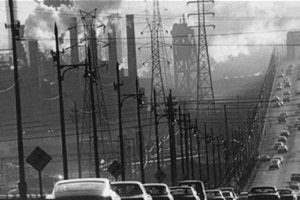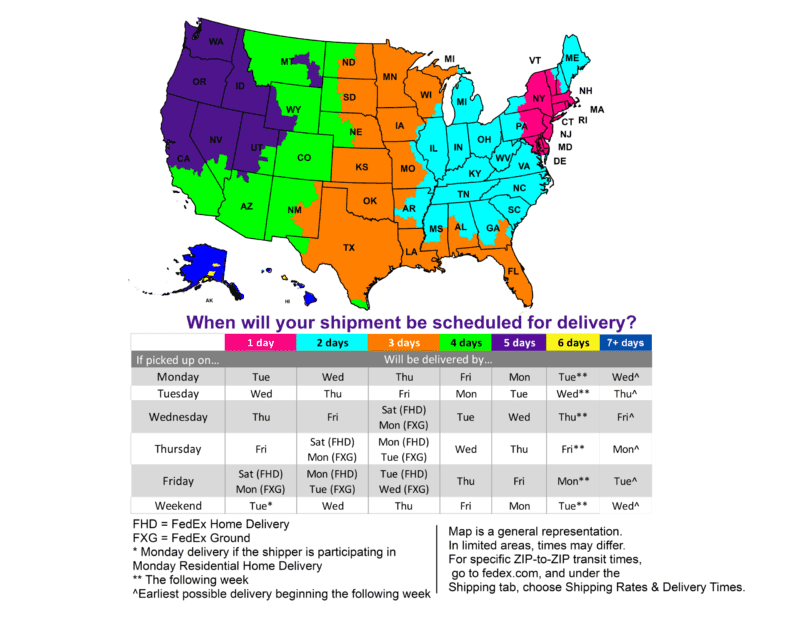It’s been a better part of six years since I last sat down to write about the impact our daily lives have on our natural and man-made surroundings. I suspect that the long dwell time between these posts must do with the improvement that I have been seeing in our collective behavior in caring more for our group environments – such as our outdoor/urban/suburban, as well our indoor home and workplace environments. During this time of national and global Green Movement v3.0, there seems to be a consensus of sorts between the People and Big Business – a balancing act performed by the consumer and a wide array of industries, both realizing that environmental stewardship is not just good for their social image but also good for their bottom line.

The business trend in most industries continues to angle towards solving old pollution problems with long term design and engineering foresight that, in the end – so to speak – will mitigate the negative impact caused by their industrial forefathers’ decades ago. Likewise, consumers continue to take notice of the improvements in air and water quality, as well as the improvements of their in-home surrounds that have been created by the advancement of these Eco-friendly technologies. The balance between the educated masses and the industries that serve them seems to have struck somewhat of a happy medium, more so than at any point in the history of the Ecology Movement thus far. A symbiotic ‘figure eight’ between the desire of the consumer for Eco-friendly, lower impact products, and the response by industry to cater to these desires, as well as the understanding that if more low impact products are brought to the marketplace the consumer will respond in a positive way towards these technologies if the price-to-profit ratio is manageable for both the manufacturer and the consumer.

A prime example is the increased demand for low VOC, water based paints and coatings now common in box stores and on specialty paint dealer shelves. This demand, mind you, was not solely created by the consumer. The demand for low VOC water based paints and coatings was driven by clean air regulations that were legislated into existence in order to help reduce low level ozone, commonly known as smog, in urban environments. The various clean air regulations that were set forth in the 1980s and ’90s, as guided by the Clean Air Act, gave birth to a wide array of high performance coatings, the EMTECH brand of Ultra Low VOC Wood Finishes made by Target Coatings is one prime example. Prior to the enactment and enforcement of these regulations the only option for the DIY and professional consumer for wood coatings were highly noxious and flammable solvent-based paints and finishes that were dangerous to use and difficult to dispose of. Now, moving forward thirty-odd years since the introduction of the early waterborne coating systems, the consumer would be hard pressed to revert back to the old-school, volatile, solvent-based formulas of years gone by. Simply put, the consumer is now educated and trained in the use of waterborne coatings and understands the lower environmental impact associated with this type of technology. They would be hard pressed to make a 180-degree change back to something many have never been taught to use or deal with.
 If my social/Eco-marketing observations are correct, and if all the symbiotic trends between consumers and producers remain focused on the improvement of our daily lives, and not focused on the reversal of what has brought us to this point in responsible consumerism, we as a global whole could continue a path that serves three unique parties in a positive, healthy way. As you might guess the parties in motion are, 1) the Consumer, 2) Industry-as-a-Whole and, of course, the party that has the most cards at stake—3) Earth.
If my social/Eco-marketing observations are correct, and if all the symbiotic trends between consumers and producers remain focused on the improvement of our daily lives, and not focused on the reversal of what has brought us to this point in responsible consumerism, we as a global whole could continue a path that serves three unique parties in a positive, healthy way. As you might guess the parties in motion are, 1) the Consumer, 2) Industry-as-a-Whole and, of course, the party that has the most cards at stake—3) Earth.
However, if the assumptions being made by our new federal administration are accurate, i.e. thinking that legislation will greatly reduce, if not completely eliminate the federal clean air and clean water laws that were enacted over forty year ago to stop and correct the many decades of industrial abuse that was heaped upon our land and waterways – the negative effect of these actions may very well create a backlash from consumers who have now taken for granted the three basic standards of healthy living – i.e. clean water, clean air and a visually clean landscape. If these standards are violated more then they have already have been, the backlash will manifest itself in one or more of the following ways:
- Consumers will boycott specific players in the industries that the new legislation allows to foul anew,
- Consumers will ignore/push away from technologies that endanger their families and/or complicate their daily lives, and/or
- These same consumers will let their opinions and voices be heard on future campaign cycles and, ultimately, in the voting booth.

If all adjustments to environmental regulations go as planned—i.e. the draconian reduction of federal clean air and water regulations—a game changing victory will be gained for those who wish to march backwards into history. The losing side of these planned policy shifts will be, by a vast majority, you and me. However, as with any battle, victories come and go, and if the voice of the people regains its bearings on just how negative the impact these changes will be on their daily lives and physical environments, I suspect that another force will correct a potentially devastating tide of dirty air and water. If common sense does not make the consumer see that radical changes to our current environmental policies will be bad for everyone, then a visit back in time to the the effects of rampant pollution created by unchecked industrialization should shake some sense into how we wish to proceed. To put it simply – we, collectively, have already done the heavy lifting in setting the course for a cleaner world. Why throw all that hard work, talent, energy and money away now?
So here I sit, crunching out a blog post that not only gets a huge weight off of my chest but also helps me refocus on why I started Target Coatings in the first place. In my eye it’s all about safety, responsibility and common sense. I’ve come too far to allow many years of dedication and hard work in making environmental stewardship and workplace safety a norm and not a passing fancy. And frankly, I am convinced that my customers feel the same way. There is no way I am going to turn back the clock of progress on my customers – or on myself.
I wish you and yours a peaceful Earth Day.
Respectfully,
Jeff Weiss / Owner, Target Coatings, Inc.



Excellent blogpost about our environment. The EDA (Environmental Destruction Agency) is doing all it can to undermine the legacy of Earth Day. Thank you for your thoughtful commentary.
Jeff,
Very well said!
Though I do not remember the calendar day that I decided to make the change to water base finishes (it was sometime in the 80’s), I remember the day that I walked out of the small shop that I had, and was stoned from the oil base finish that I had been using for years. Said to myself “something has to change”. In that era there was not much to choose from. Sherwin Williams rep had come by the shop that I was working in, about 1979, and plopped down a five gallon container of a water base finish. He said “try this, it is something new”. It failed because it was applied over Minwax oil base stain that had only one evening to dry. At the time we did not know, or understand the reaction, so of course it did not work well at all. By itself, it may have been a good finish, but we did not think about it and of course the rep was just doing his job and giving it to us to try. Now we are in a new world of water base finishes and Target Coatings has led the way, and I could not be happier! Keep up the great work that you are doing. You have helped the Earth and us!
Frank
Thank you, Frank. Yes, it was a different world in 1979 — and a more polluted one at that. Our mission is to prevent the return of wonton water and air degradation through Federal and State deregulation. The Clean Air Act and Clean Water Act were hard won battles and to have them gutted would have grave consequences on our population regardless of where we live in the US. We cannot allow things to slip backwards — we must keep moving forward and work on new technologies that are afe and functional – both of which are already available. As always, thank you for sharing your experiences with us.
-JW-
I saw the link and just had to share this, Jeff! Thank you ! My one regret is that I do not have a whole lot more opportunities to interact with you and Target Coatings- love your products! Keep up the great work!
Tim Brown
Artisans In Wood
Thank you, Tim.
-JW-
My friend from high school above, Tim Brown, posted your meditation on FB and I re-posted it. Firstly, next time i have a wood project (come to think of it, I do right now) I’ll look for your products to use. Why? My good friend recommends them. And, any business man who writes about what it was like when I was a kid and NOT going back to that, and who explains the Ecology Flag, which hangs from my porch in Vermont everyday, is a guy I want to listen to and promote. So, thank you for what you are doing and writing. And come visit Vermont – when we all can again. Lots of wood here…
Sincererly,
Byron Breese
– a cranky old vet building a Japanese tea house
Thank you, Byron. I do my best to keep the our environmental stewardship and image on the level as we move down the line. I’ll keep your good words in mind as we progress…
-JW-